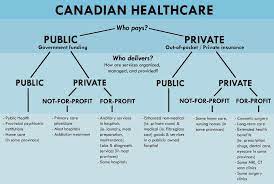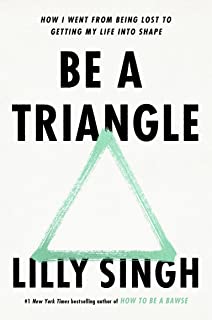In recent years, the landscape of business and entrepreneurship has witnessed a remarkable rise in women-led organizations, with women breaking barriers and making their mark in various industries. Canada, known for its commitment to diversity and equality, is home to numerous women-led organizations that are driving innovation, making a difference, and inspiring future generations. In this article, we celebrate the achievements and highlight the stories of thirteen exceptional women-led organizations in Canada
1. Canadian Women’s Foundation
As one of the largest women’s foundations in Canada, the Canadian Women’s Foundation works to address gender inequality and support women’s economic empowerment, ending gender-based violence, and promoting girls’ rights. They invest in community programs and initiatives that create lasting change.
2. Women of Influence
Women of Influence is a platform that celebrates and supports the advancement of women in leadership positions. Through their events, media, and community initiatives, they amplify the stories and achievements of influential women across various sectors.
3. Women of Rubies Inc.
Women of Rubies is not only a women’s platform dedicated to highlighting female business owners worldwide but also a boutique communications firm providing comprehensive public relations solutions in events, marketing, reputation management, media relations, and strategy. Established by Esther Ijewere, a highly acclaimed media personality and public relations strategist, this platform has successfully showcased and celebrated the achievements of more than 5000 women globally.
4. CIBWE
CIBWE, which stands for Canada International Black Women Excellence, is a distinguished Canadian organization dedicated to celebrating, empowering, and advancing the achievements of Black women across the country and beyond. Founded on the principles of equality, inclusivity, and empowerment, CIBWE strives to create a platform that not only recognizes the remarkable contributions of Black women but also provides them with the tools and resources they need to thrive.
This dynamic organization serves as a beacon of hope and inspiration for Black women, offering support in various aspects of their lives, from education and entrepreneurship to leadership and community engagement. CIBWE believes in the power of unity and collaboration, bringing together diverse voices and talents to foster positive change and break down barriers.
With a commitment to excellence and a focus on creating opportunities for personal and professional growth, CIBWE continues to be a driving force in promoting the success and well-being of Black women in Canada and making their voices heard on the global stage. Through its initiatives, events, and advocacy, CIBWE shines a spotlight on the outstanding achievements of Black women while paving the way for a more inclusive and equitable future.
5. Total Mom Inc
Total Mom Inc. Canada is an organization that focuses on supporting and empowering mothers in Canada. It is a platform that provides resources, community, and opportunities for personal and professional growth for moms.
Total Mom Inc. offers a wide range of services and programs to cater to the diverse needs of mothers. They provide educational resources, workshops, and events that cover various topics such as parenting, career development, self-care, and entrepreneurship. Through these offerings, they aim to equip moms with the knowledge, skills, and support they need to thrive in all aspects of their lives.
Additionally, Total Mom Inc. provides networking opportunities and a sense of community for mothers. They facilitate connections among moms, creating a space where they can share their experiences, offer support, and build meaningful relationships. The organization understands the importance of a strong support system and strives to create a community that celebrates and uplifts moms.
Total Mom Inc. also collaborates with businesses and brands to create opportunities for moms to pursue their passions and interests. They connect moms with brands that align with their values and provide platforms for them to showcase their talents and expertise.
6. The Canadian Association of Women Executives & Entrepreneurs (CAWEE)
CAWEE is a prominent organization that supports and advocates for women executives and entrepreneurs in Canada. They offer networking opportunities, educational programs, and resources to enhance the professional growth and success of women in business.
7. Women’s Entrepreneurship Knowledge Hub (WEKH)
WEKH is a national organization that promotes research, knowledge-sharing, and collaboration to advance women’s entrepreneurship in Canada. They work towards creating a supportive ecosystem for women entrepreneurs through partnerships and initiatives across the country.
8. Women in Communications and Technology (WCT)
WCT is a national organization focused on advancing women’s leadership and inclusion in the communications and technology sectors. They provide mentorship, professional development programs, and networking opportunities to empower women and promote diversity in these industries.
The range of services offered by Women of Rubies encompasses various areas, including product launches, influencer programs, PR strategy development, media training, event management, experiential marketing, and corporate communications support.
9. Black Mom Connection
Founded by award-winning event planner and creative storyteller Tanya Hayles, Black Moms Connection started with a group of 12 women in Toronto looking to create a safe space to ask culturally relevant questions and get culturally relevant answers. Since its inception, this once local grassroots organization has evolved into an online global village of more than 16,000 people with chapters in a variety of North American cities and in Asia. As a registered non-profit organization, Black Moms Connection offers culturally relevant tools and resources to empower and educate Black women. Workshops and sessions range from special needs education to financial literacy, encouraging mothers to increase the social, emotional, financial, and well-being of the Black family.
10. Afro Women and Youth Foundation
Afro Women and Youth Foundation Canada is an organization dedicated to empowering and uplifting Afro women and youth in Canada. The foundation focuses on addressing the unique challenges and barriers faced by Afro women and youth, and works towards creating opportunities for their personal and professional growth.
Through various programs and initiatives, the foundation aims to promote education, entrepreneurship, leadership development, and community engagement among Afro women and youth. They provide resources, mentorship, and support networks to help individuals enhance their skills, explore career pathways, and achieve their full potential.
11. Women’s Executive Network (WXN)
WXN is Canada’s leading organization dedicated to advancing and celebrating the achievements of women in business. They provide networking opportunities, leadership development programs, and recognition through prestigious awards to inspire and empower women professionals.
12. TechGirls Canada
TechGirls Canada is a national organization that advocates for diversity and gender equality in the tech industry. They work to create inclusive environments and provide resources, mentorship, and support for women and girls pursuing careers in technology.
13. Black Women In Motion
Founded by Monica Samuel, Black Women in Motion is a Toronto-based, youth-led organization that empowers and supports the advancement of Black women, gender-non-confirming, and non-binary survivors of gender-based violence. As an educator, community builder, social entrepreneur and DEI consultant, Monica has spent the past decade focusing on anti-oppression, equity, mental health, sex positivity, and consent. She’s known for her creation of culturally centred spaces for learning, unlearning, and self-expression.
Programs include the Black Youth Employment Assistance Program, Black Peer Education Network, Love Offering Community Emergency Relief Fund, and other wellness initiatives, internships, and workshops. The organization offers a number of ways for interested parties to get involved from monetary donations, corporate partnerships, non-monetary gifts, and volunteer opportunities. While this organization is Toronto-based, they’re bringing education and community to a much broader audience.
14. Native’s Women Association of Canada
The Native Women’s Association of Canada (NWAC) is a National Indigenous Organization representing the political voice of Indigenous women, girls, and gender diverse people in Canada, inclusive of First Nations Peoples on and off reserve, status and non-status, disenfranchised, Métis, and Inuit.
NWAC was founded to enhance, promote, and foster the social, economic, cultural, and political well-being of Indigenous women. An aggregate of Indigenous women’s organizations from across the country, NWAC engages in national and international advocacy aimed at legislative and policy reforms that promote equality for Indigenous women, girls, Two-Spirit and gender diverse people, including LGBTQIA+ people.
NWAC works on a variety of issues such as employment, labour and business, health, violence prevention and safety, justice and human rights, environment, early learning childcare, and international affairs.
15. The Period Purse
As most good stories do, this one started with one woman and her desire to help. Wondering how those experiencing homelessness would gain access to period products, Jana Girdauskas, a teacher and mom, filled one purse with menstrual supplies and other hygiene items, ready for someone in need. She put a request out on Facebook and within a month she received 350 purses filled with donated products. That was 2017. Today, The Period Purse is Canada’s first and only registered charity dealing with menstrual equity and has chapters across the country.
They’ve donated more than 2.5 million period products since their inception. With a focus on reducing the stigma surrounding periods through education and advocacy, The Period Purse provides a number of opportunities for those interested in volunteering their time, items or financial support to the cause. With the announcement in Ontario around making period products available for free to students in schools, period equity has certainly been top-of-mind.
The rise of women-led organizations in Canada is a testament to the incredible talent, resilience, and determination of women entrepreneurs and leaders.
The thirteen organizations highlighted in this article are just a snapshot of the diverse and impactful initiatives being spearheaded by women across the country.
Through their visionary leadership, these organizations are breaking barriers, inspiring change, and creating a more inclusive and equitable society. As we celebrate their achievements, let us continue to support and uplift women-led organizations, amplifying their voices and ensuring their continued success.
Follow us on Instagram for more Inspiring post’; https://www.instagram.com/womenofrubies_/
















